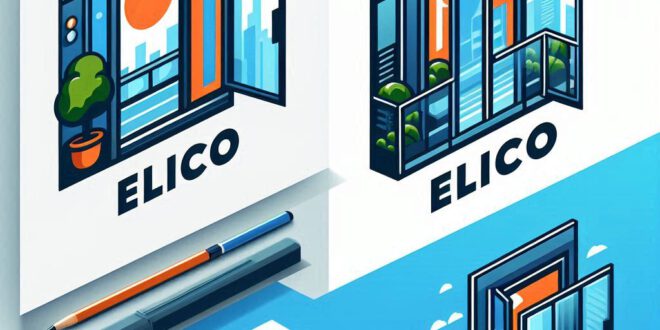The Benefits of Installing Automatic Glass Doors in Financial Institutions
In today’s rapidly evolving business environment, financial institutions are increasingly seeking ways to enhance their operational efficiency while providing an attractive customer experience. One innovative solution that has gained significant traction is the installation of automatic glass doors. While these doors may seem like a minor architectural element, their benefits extend far beyond aesthetics, playing a pivotal role in facilitating accessibility, security, energy efficiency, and customer satisfaction. This blog post delves into the multifaceted advantages of incorporating automatic glass doors in financial institutions.
Accessibility Enhancement
Accessibility is a fundamental principle in the design of public spaces, especially in financial institutions that serve a diverse clientele. Automatic glass doors are instrumental in creating a barrier-free environment, ensuring that individuals of all abilities can easily enter and exit the premises without the need for manual assistance. This feature is particularly beneficial for elderly customers or those with disabilities, as it eliminates the physical strain associated with traditional door mechanisms.
Moreover, automatic glass doors can enhance the customer experience during peak hours when long lines can lead to frustration. Instead of navigating through heavy manual doors, clients can swiftly gain access to the institution, thereby minimizing wait times and improving overall efficiency. This focus on accessibility not only meets regulatory compliance, such as the Americans with Disabilities Act (ADA) in the United States, but also fosters a sense of inclusivity that is critical in the financial services industry.
Security Benefits
In an era characterized by escalating security concerns, financial institutions must prioritize customer safety to maintain trust and credibility. Automatic glass doors offer a multitude of security advantages. Firstly, they can be programmed to operate only during designated business hours, significantly reducing the risk of unauthorized access outside of operating times. This feature can serve as a deterrent to potential intruders.
Additionally, many modern automatic glass doors are equipped with sophisticated locking systems that provide enhanced security measures. These systems can integrate seamlessly with alarm systems, ensuring that the entrances are secured in conjunction with other security protocols. Beyond physical barriers, the transparency of glass doors fosters a sense of openness, allowing for better visibility of the surrounding area. This transparency can act as a psychological deterrent against criminal activity, as potential wrongdoers are less likely to target institutions where they are readily visible.
Energy Efficiency
As energy conservation becomes an increasingly pressing concern, financial institutions are seeking ways to minimize their environmental impact while reducing operational costs. Automatic glass doors can contribute significantly to energy efficiency in various ways. First and foremost, they help to maintain indoor climate control by creating airtight seals that diminish the infiltration of external air. This ability to regulate temperature leads to reduced heating and cooling costs, which can represent a substantial portion of a financial institution’s operating expenses.
Moreover, when equipped with motion sensors, automatic doors only open when an individual approaches, thereby preventing unnecessary air exchange and further enhancing energy savings. By utilizing energy-efficient automatic doors, financial institutions not only achieve significant cost reductions but also demonstrate their commitment to sustainable practices, a value increasingly appreciated by socially conscious consumers.
Enhanced Aesthetic Appeal
The aesthetic impact of automatic glass doors should not be underestimated. Financial institutions are often seen as bastions of professionalism and credibility, and the architectural elements of their buildings should reflect those values. Automatic glass doors provide a sleek, modern appearance that enhances the overall aesthetic of the institution, creating an inviting atmosphere for clients.
These doors can be customized to align with the organization’s branding, whether through the inclusion of logos or by selecting finishes that resonate with the institution’s design philosophy. This ability to personalize the look and feel of the entrance can help in establishing a unique identity that differentiates one financial institution from another in a highly competitive market.
Improved Customer Experience
In the financial sector, customer experience is paramount. Institutions must adapt to evolving consumer expectations, which increasingly encompass convenience and comfort. The inclusion of automatic glass doors can significantly enhance the customer experience by streamlining entry and exit, thus minimizing friction points. Customers are more likely to feel welcomed and appreciated when their interactions with the institution are effortless, leading to higher satisfaction rates.
Additionally, automatic doors contribute to a quieter, more serene environment, as they eliminate the disruptive sound of manual doors opening and closing. This subtle yet impactful improvement can foster a calm atmosphere, conducive to financial discussions and transactions. A positive customer experience often translates into increased loyalty and trust, both critical components of a successful financial institution.
Conclusion
The installation of automatic glass doors in financial institutions offers a multitude of benefits that extend beyond mere functionality. From enhancing accessibility and security to promoting energy efficiency and improving aesthetic appeal, these doors are an investment that aligns with the evolving needs of modern businesses. As financial institutions continue to prioritize customer satisfaction and operational efficacy, the adoption of automatic glass doors represents a strategic move towards achieving those objectives. By embracing this innovative architectural solution, financial institutions can elevate their service offerings, promote inclusivity, enhance security measures, and establish themselves as leaders in an increasingly competitive marketplace. Ultimately, the transition to automatic glass doors is a testament to a financial institution’s commitment to innovation and quality service in the pursuit of excellence.
 Elico Glass Industry Balcony & partition Glass
Elico Glass Industry Balcony & partition Glass





